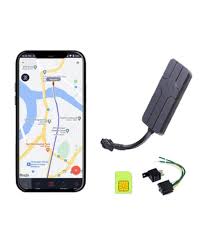An
auto GPS tracker device is a small electronic device used to track the location of a vehicle in real-time using GPS (Global Positioning System) technology. These devices are commonly used for fleet management, personal vehicle tracking, and ensuring the safety and security of vehicles. Here's an overview of the main types, features, and benefits of auto GPS trackers:
1. Types of Auto GPS Trackers:
- Hardwired GPS Trackers: These are directly wired into the vehicle's electrical system. They offer continuous power from the vehicle’s battery and are more difficult to tamper with or remove.
- Plug-and-Play GPS Trackers: These are devices that connect to a vehicle's OBD-II (On-Board Diagnostics) port, commonly found in most cars manufactured after 1996. They are easy to install and can provide diagnostics alongside location tracking.
- Battery-Powered GPS Trackers: These are portable devices that run on batteries. They can be placed in different locations in the vehicle and are useful for temporary tracking, like tracking a car rental or during a road trip.
2. Key Features:
- Real-Time Tracking: GPS trackers provide live location updates, typically through a mobile app or web portal.
- Geofencing: Users can set up geofences (virtual boundaries). If the vehicle enters or leaves the designated area, the tracker sends an alert.
- Speed Monitoring: Some GPS trackers can monitor the vehicle’s speed and alert the user if the speed exceeds a preset limit.
- Historical Data: Many trackers store historical data, allowing users to view the vehicle’s travel history.
- SOS and Emergency Alerts: Some trackers feature emergency buttons that can send alerts or notify authorities if the driver is in distress.
- Vehicle Diagnostics: Advanced trackers can monitor vehicle health, including engine status, fuel levels, tire pressure, and more.
3. Benefits of Auto GPS Trackers:
- Vehicle Security: In case of theft, the tracker allows you to pinpoint the location of your vehicle, which can assist in its recovery.
- Fleet Management: Companies that manage multiple vehicles can track all their vehicles' locations, monitor driver behavior, and optimize routes.
- Driver Behavior Monitoring: Fleet operators or parents can monitor how safely the vehicle is being driven, checking for reckless driving behaviors such as harsh braking, speeding, and rapid acceleration.
- Cost Savings: With real-time tracking and optimized routing, fleet managers can reduce fuel consumption, improve efficiency, and lower operational costs.
- Peace of Mind: For personal vehicles, knowing that you can track your car if something goes wrong adds an extra layer of peace of mind.
4. Considerations When Choosing a GPS Tracker:
- Subscription Fees: Most GPS tracking systems require a monthly or annual subscription for data services.
- Accuracy: Check the tracking accuracy of the device, especially if you need precise location data.
- Battery Life: For portable trackers, battery life is a crucial factor to consider.
- Mobile App and Interface: Ensure the tracker’s software interface is easy to use and provides the features you need.
- Durability: If you plan on using the tracker in challenging environments (e.g., extreme weather or off-roading), make sure it's rugged enough. Read more.. Vehicle gps device




Comments
Post a Comment